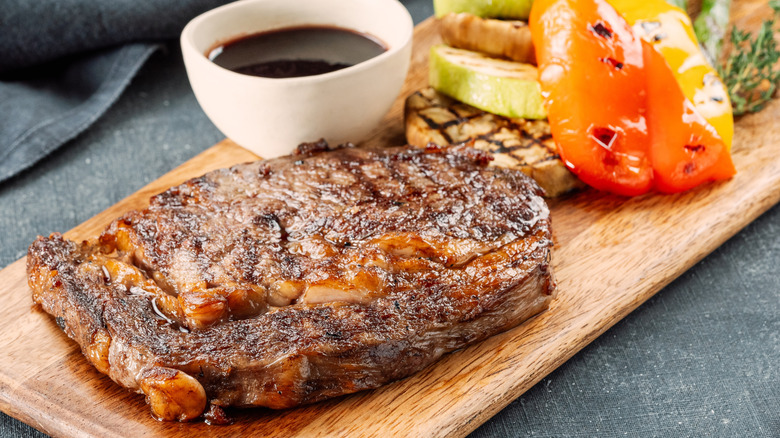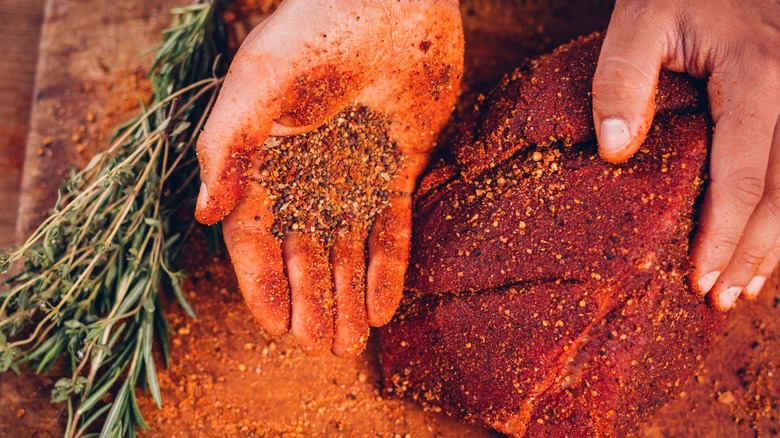What It Means When Your Steak Tastes Fishy
The last word folks think of when visualizing an immaculately prepared steak is "fishy." I suppose you could call it an unfortunate form of surf and turf; the "surf" and the "turf" should be entirely separate entities that complement each other, not two dishes rolled into one. Whether a steak is cooked in the oven, grilled to perfection, or country-fried, something has gone horribly awry if it tastes like it came from the sea.
Eric Fernandez is the associate director at The Culinary Edge, and he dropped some knowledge on us about why beef occasionally takes on notes of ocean fare. "A fishy flavor in steak is almost always a sign of oxidation," he said. "As beef fat breaks down — especially in older or improperly stored meat — it can start to taste metallic or fishy." It might sound like a fishy flavor means the beef has spoiled, but Fernandez shared why that's not necessarily the case. "If the steak smells strongly off or the flavor is intense, it's best to throw it out," he said. "But if it's a mild, borderline taste, it's likely safe — just not pleasant."
"Not pleasant" is another term that should never be associated with steak, but how do you know if it's going to taste off before you cook it? "If steak is grey and not bright red before cooking, there is a high chance it will taste fishy," Fernandez said. If you made the mistake of buying questionable supermarket steak, your nose will clue you in to whether or not it is worth trying to save. Fernandez said, "Trust your senses: A bad smell, slimy texture, or an overpowering fishy note are red flags."
How to cover up a steak's fishy taste
Most of us have reached into the fridge to grab a once-magnificent cut of beef only to realize the steak is showing telltale signs of expiration. Eric Fernandez suggested taking a cue from those who came before us if you want to make the most out of that less-than-ideal situation. "In medieval Europe, before refrigeration and proper meat storage, spices like clove, allspice, and cinnamon were prized not just for flavor but for their ability to cover that fishy taste of aging meat," he explained.
Yes, you are just masking the taste of a subpar steak, but it's better than throwing it out when it's still perfectly edible. If you view it as an opportunity to elevate your spice rub game, it can actually be a worthwhile learning experience. Fernandez had a couple of pointers to steer folks in the right direction. "Bold rubs and spices and a hot grill will help cover up any fishy flavors of oxidized or fishy meat," he said. "Strong flavors and char will do a lot of heavy lifting here."
Still, it's obviously best to avoid a steak that might taste fishy altogether. Unfortunately, Fernandez indicated that buying specific types of beef might not help much. "Grass-fed beef itself can have a more distinct or gamey flavor than grain-fed beef, but if stored properly, should not have a fishy taste," he said. Yet, if it isn't stored correctly or it has simply passed its prime, that fishy taste might be inevitable. "It's less about what the cow ate and more about freshness and fat degradation," Fernandez said.

